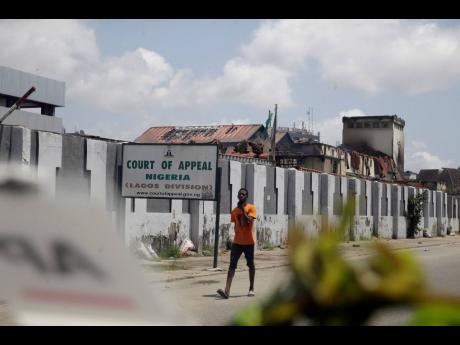Walter Molano | Nigeria: More than an oil play
OP-ED CONTRIBUTION: EMERGING MARKET ADVISER
Nigeria has emerged as the largest economy in Africa, with a GDP of slightly more than US$400 billion in 2019 and a population of almost 200 million. This makes it a country, with roughly the population of Brazil, but with between a fourth or fifth of its GDP.
The West African nation has a population growth rate of 3.8 per cent, which makes it the third-fastest growing population on the planet, and it will be the third-largest country in terms of population by 2050. It is projected to have more than 400 million people, and only India and China will have more.
This is why Nigeria is so interesting to many companies and investors, given that it will soon become one of the most important consumer and labour markets in the world.
Ever since the discovery of oil in the late 1950s, Nigeria has relied heavily on it for exports and investment. Today, Nigeria is the 13th-largest oil exporter in the world, with daily production of about 1.8 million barrels of oil and total reserves estimated at more than 37 billion barrels.
It is no wonder Nigeria is considered to be an oil play, since it accounts for more than 90 per cent of total exports. This has made the country highly vulnerable to the enormous volatility in the energy markets, as well as the global shift towards renewable energy.
The government understands that its future lies in its growing population. Unfortunately, the country’s literacy rate remains low, at only 62 per cent. This is far short of South Africa’s literacy rate of 95 per cent.
To this end, the government has been dedicating more resources to education, creating several major initiatives. Fortunately, they have had results, allowing the government to improve the literacy rate more than 10 points between 2008 and 2018. It has also led to tangible benefits.
Like other countries, Nigeria has been hit by the COVID-19 pandemic, but in contrast to the United States and Europe, it has not been as devastating. In order to improve testing, the government rolled out its own domestically developed testing kits, which were faster and cheaper. This was a testament to the benefits of better education. Such successes will be an important form of advertisement to lure more international companies to consider Nigeria as a place to locate future manufacturing and research facilities.
The milder outbreak of the pandemic helps explain why the economy is going to contract only three per cent y/y in 2020. The government is also looking for a recovery of 1.3 per cent y/y in 2021 and an acceleration to three per cent y/y in 2022. Unfortunately, its continued dependence on oil continues to be a problem. The decline in oil prices has resulted in a drop in exports, government revenues and reserves. As a result, the Nigerian naira – the NGN – which is considered to be overvalued, has been under pressure, and the government has been forced to impose capital controls, thus raising concerns of further devaluations and causing the inflation rate to rise over 13 per cent.
Moreover, the fiscal deficit increased to 3.4 per cent of GDP during the last twelve months to March 2020, while the current account deficit reached 4.2 per cent of GDP in 2019. Still, the external debt load remains low at seven per cent of GDP, and international reserves are almost 1.3 times the external debt. Additionally, the amortisation schedule is fairly well distributed over the next 30 years.
Fortunately, the government enjoys strong IMF support, and the multilateral lending agency recently recommended a US$3.4-billion emergency funding programme.
The political picture also looks good. Nigeria has had a stable democracy since 1999, and in February of last year, President Muhammadu Buhari, of the APC Party, won his re-election bid. A former general, he had previously ruled the country during the mid-1980s, but is now more comfortable working in a democratic framework. He won almost 56 per cent of the vote, and swept most of the southern part of the country.
Buhari is seen as an austere leader, who is tough on corruption. His rival, Atiku Abubakar, from the PDP Party, is a multibillionaire businessman who advocates liberal economic reforms. Both men are Muslims and hail from the north. Hence, the political slate is amenable to the market.
Despite having relative sound economic and political situations, the rating agencies consider Nigeria to be a single-B credit. Moody’s rates it B2, and S&P as B-. The country’s overdependence on oil is considered to be a major vulnerability.
Earlier in the year, with oil prices going under, Nigeria faced pressure on its currency and foreign exchange reserves. However, oil prices have since stabilised and bond prices have rallied. This has allowed Nigeria to perform very well during the third quarter of this year.
The country will hold its ground, and will be much more than just another oil play.
Dr Walter T. Molano is a managing partner and the head of research at BCP Securities LLC.

